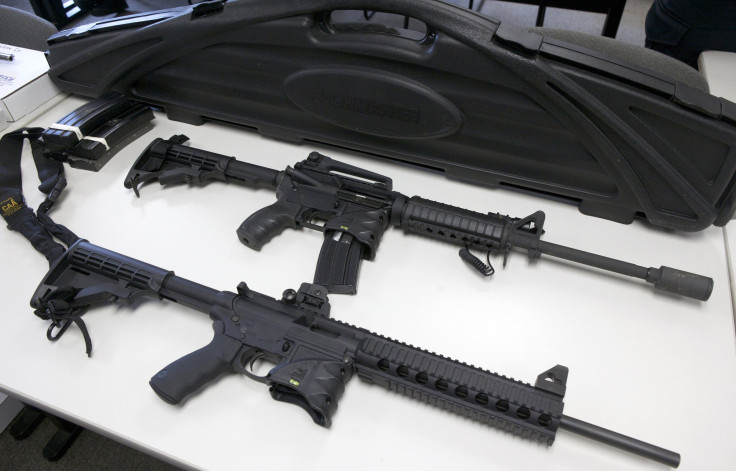Hands Off Our Guns! NRA Blasts UN's Arms Trade Treaty

The National Rifle Association claims the global Arms Trade Treaty under discussion at the U.N. threatens gun ownership rights in America.
The treaty aims to regulate the international arms trade to prevent weapons from illicitly flowing into conflict zones and would require countries to determine which weapons they export are likely to end up in the wrong hands.
The NRA says the treaty doesn't distinguish between military and civilian weapons, and claims that it will ultimately be used to prevent ownership in the U.S. of arms like AK-47 assault rifles, which are included in the treaty under the category of small arms and light weapons among grenade launchers and Stinger missiles.
“What we really object to is the inclusion of civilian firearms within the scope of the [treaty],” Tom Mason, the NRA’s executive secretary who has also provided the group with legal representation at the U.N. for nearly two decades, said in the Washington Post.
“This is a treaty that really needs to address the transfer of large numbers of military weapons that leads to human rights abuses,” he added.
Human rights advocacy group Amnesty International says such a distinction is dubious and would undermine the fundamental purpose of the treaty.
“The NRA claim that there is such a thing as ‘civilian weapons’ and that these can and need to be treated differently from military weapons under the Arms Trade Treaty is -- to put it politely -- the gun lobby’s creativity on full display,” said Michelle Ringuette, chief of campaigns and programs at Amnesty International USA, in a statement.
“There is no such distinction,” she added. “To try to create one would create a loophole that would render the treaty inoperative, as anyone could claim that he or she was in the business of trading ‘civilian weapons.’”
The treaty does have implications for the global arms trade, which is valued at more than $60 billion annually, with U.S. exports comprising roughly one-third of all weapons.
While the NRA primarily lobbies for gun ownership rights in the U.S., Amnesty has accused it of promoting an unregulated global arms trade.
“In our view, the NRA is willing to trade in human rights and human security for an unregulated, free market in dangerous weapons,” the group said in a statement.
Poverty reduction and social justice advocacy group Oxfam America has said that the NRA’s campaign against the treaty is merely an effort to promote itself.
"They know that arms treaty is not going to impact domestic gun control" Scott Stedjan, senior policy advisor for humanitarian response at Oxfam America, said in the Guardian.
"The issue they are most concerned about lies outside the treaty. This treaty is not about this issue but it is about getting the support of their [NRA] grassroots.”
U.S. Secretary of State John Kerry recently responded to concerns about the treaty’s affect on Second Amendment rights. “The United States could only be party to an Arms Trade Treaty that addresses international transfers of conventional arms solely and does not impose any new requirements on the U.S. domestic trade in firearms or on U.S. exporters,” Kerry said in a statement on March 15.
“We will not support any treaty that would be inconsistent with U.S. law and the rights of American citizens under our Constitution, including the Second Amendment,” he added.
© Copyright IBTimes 2024. All rights reserved.











